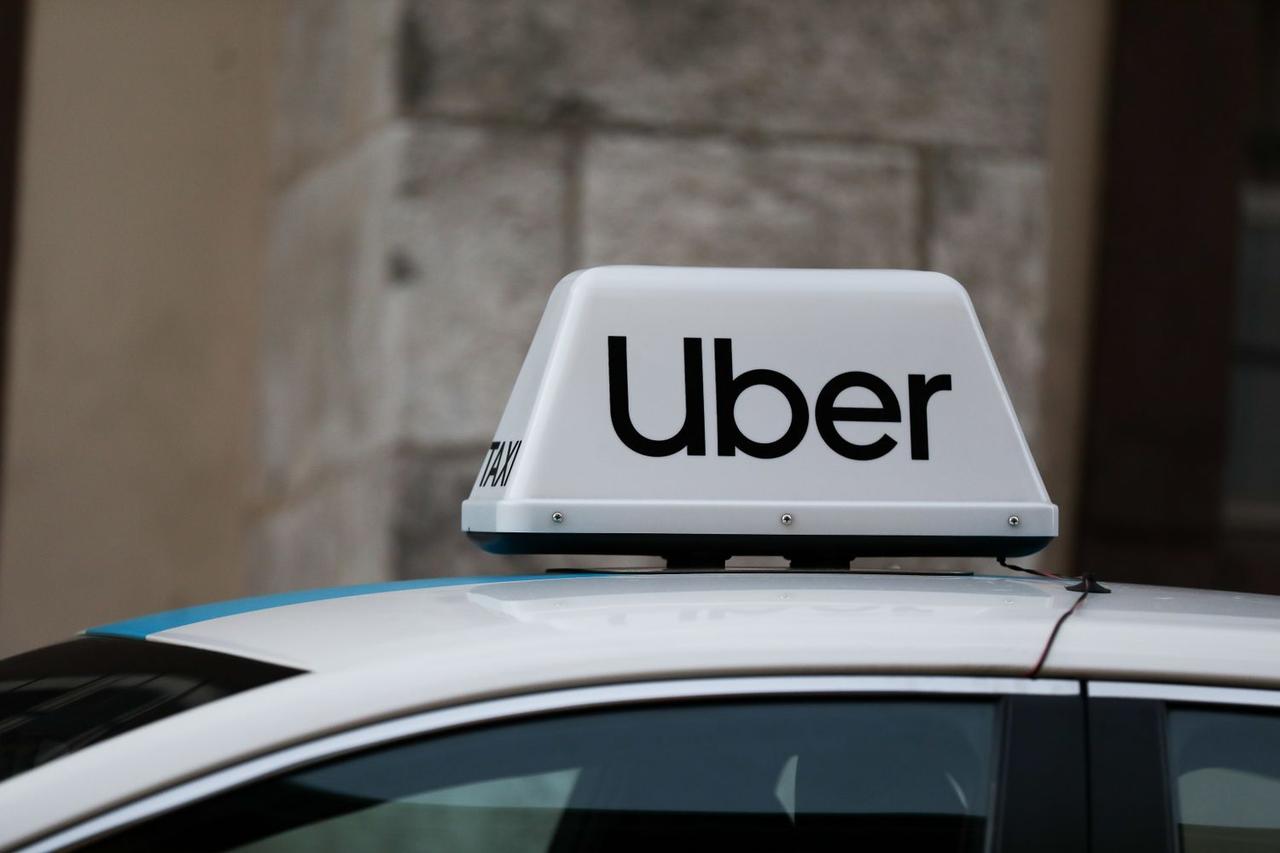Uber Ventures into AI Services with New Gig Worker-Powered Division
5 Sources
5 Sources
[1]
Uber pivots to AI services, tapping gig workers for data labeling
The big picture: By capitalizing on its gig-economy expertise and technological infrastructure, Uber hopes to become a player in the AI development ecosystem. As demand for AI-related services continues to grow, Uber's success in this new venture could reshape its business model and open up new avenues for growth. Uber Technologies is moving beyond its rideshare roots and venturing into the hot artificial intelligence development outsourcing market. The company's new division, Scaled Solutions, is expanding Uber's gig-economy workforce to include programmers and data labelers, offering AI model training and data labeling services to other businesses. This strategic pivot builds on Uber's internal team that has been handling large-scale annotation tasks for its rideshare, food delivery, and freight units. Now, Scaled Solutions is extending its expertise to serve external clients, including Aurora Innovation Inc., an Uber-backed firm developing self-driving software for commercial trucks, and Niantic Inc., the game developer behind Pokémon Go. For Aurora Innovation, Uber's contractors are helping ensure accuracy in classifying road objects for self-driving software. Niantic is utilizing Uber's services to evaluate location data for its ambitious project to create a 3D map of the world for augmented reality games. Uber's entry into the AI services market is well-timed, as global companies increasingly rely on human-vetted data to train AI models. The success of companies like Scale AI Inc., valued at $14 billion, underscores the potential of this rapidly growing sector. To support Scaled Solutions, Uber has begun signing up contractors with various skills in India, the US, Canada, Poland, and Nicaragua. The company is seeking individuals with programming expertise, language proficiency, and cultural knowledge to perform tasks such as image labeling, text annotation, and video context provision. Earnings for these contractors will be determined by completed tasks and paid out monthly, aligning with Uber's existing model for its rideshare and delivery services. Uber's vision for Scaled Solutions extends beyond basic data labeling. The company plans to utilize contractors' local knowledge for cultural adaptation of products, engage programmers to refine AI chatbots, and recruit freelancers to evaluate outputs from advanced AI language models. Uber says it has the necessary experience to enter the AI services market. "Having performed these tasks at scale over the past decade as part of our own growth, we deeply understand the needs of companies requiring these services," an Uber spokesperson told Bloomberg in an emailed statement. Hiring independent contractors aligns "with our expertise as one of the world's largest providers of flexible work opportunities," the spokesperson added. However, Uber's expansion into this field is not without challenges. The data labeling industry has faced criticism for underpaying workers, particularly in developing countries. As Uber expands its contractor base globally, ensuring fair compensation across different regions will be crucial for the company's reputation and the sustainability of its new venture. Additionally, Uber will need to figure out how to maintain high standards of data quality across a diverse, global workforce.
[2]
Uber for AI labeling
Uber is using gig workers to get into the AI labeling business, Bloomberg reports. It's a sign that the ridehail and delivery company is interested in expanding its independent contractor-powered business model to meet the demands of the fast-growing world of machine learning and large-language models. The company's new "Scaled Solutions" division claims it can connect businesses to "nuanced analysts, testers, and independent data operators" using its platform. It's an extension of an internal team with members based in the US and India that do new feature testing and other tasks like converting restaurant menus to Uber Eats selections. Uber was already using artificial intelligence and machine learning for its own business and is now making that available to others for a fee. The company is hiring gig workers for data labeling, testing, and localization for other companies, including Aurora, Luma AI, and Niantic. A big behind-the-scenes reality of AI model training is that it requires many human workers to do tedious tasks such as selecting the most human-sounding chatbot results or labeling obstacles like pedestrians in self-driving car footage frame-by-frame. Companies building AI models often hire workers in developing countries to do these tasks and pay small amounts per exercise. One engineer in India told Bloomberg they were tasked with comparing and rating the correctness of AI-generated responses to complex coding problems, and were paid 200 rupees per set, or about $2.37. Uber is currently signing up people from Canada, India, Poland, Nicaragua, and the US, paying different amounts per completed task with earnings issued to workers monthly. It's also looking for people with different cultural backgrounds to help make AI more adaptable in various markets. This isn't Uber's first dalliance with AI. The company spent billions on developing its own self-driving cars -- only to shut the whole operation down after one of its vehicles killed a pedestrian. In 2016, Uber also acquired its own AI research lab founded by cognitive scientists Gary Marcus and several other computer science professors.
[3]
Uber is building a fleet of gig workers to label data for AI models | TechCrunch
Uber is expanding its fleet of gig workers and creating a new category: AI annotation and data labeling. The ride-hailing company has started hiring contractors for a new AI and data labeling division called Scaled Solutions. These workers complete projects for Uber's internal business units but are also serving outside customers including self-driving vehicle company Aurora Innovation and video game developer Niantic, according to reporting from Bloomberg. Uber has started recruiting contractors in countries including the U.S., Canada, and India, among others, Bloomberg reported. Uber's move into data labeling comes as that market has become increasingly hot, thanks to the rise of AI. For example, Scale AI is one company in the sector seeing increased demand. The company raised a $1 billion round at a $13.8 billion valuation earlier this year after only raising $600 million prior in its eight-year history.
[4]
Uber Expands Into AI Data Labeling Using Gig-Coders for Hire
Uber Technologies Inc.'s gig-economy workforce now includes programmers. The company is expanding beyond its rideshare roots to enter a hot new market: helping other businesses outsource some of their artificial intelligence development to independent contractors. Its new AI training and data labeling division, called Scaled Solutions, builds on an internal team that tackles large-scale annotation tasks for Uber's rideshare, food delivery and freight units. According to its website, Scaled Solutions has begun serving other companies that also need high-quality datasets. Clients include Aurora Innovation Inc., an Uber-backed firm that makes self-driving software for commercial trucks, and Niantic Inc., the game developer behind Pokémon Go.
[5]
Uber's latest gig economy play is offering out coders for hire
Scaled Solutions supplies workers for AI training and data labeling positions. reports that Uber has started farming out independent contractors for data-labeling services as well as coders-for-hire. Uber describes its new Scaled Solutions division as a platform of "analysts, testers and independent data operators," according to . Scaled Solutions began life as an internal team, handling "large-scale annotation tasks" for Uber's other services. Now it's been expanded to provide coders and data labelers for outside companies like Pokémon Go developer Niantic Inc. and the self-driving trucking software firm Aurora Innovations. Aurora acquired Uber's self-driving unit in 2020 and Uber is one of Aurora's investors. Uber started recruiting workers this month for its Scaled Solutions division from India, the US, Canada, Poland and Nicaragua. Scaled Solutions also posted some corporate openings for positions in San Francisco, New York and Chicago. According to an onboarding FAQ reviewed by Bloomberg, contractor pay is distributed monthly and totals are based on the tasks that contractors complete. The company did not reveal any specific rates to Bloomberg for its new crop of freelance employees.
Share
Share
Copy Link
Uber launches Scaled Solutions, a new division offering AI training and data labeling services using gig workers, expanding its business model beyond ride-sharing into the growing AI development outsourcing market.

Uber Launches Scaled Solutions for AI Services
Uber Technologies, known primarily for its ride-sharing platform, is making a strategic pivot into the artificial intelligence (AI) development outsourcing market with its new division, Scaled Solutions. This move leverages Uber's expertise in the gig economy to offer AI training and data labeling services to other businesses
1
2
.Expanding the Gig Economy Model
Scaled Solutions extends Uber's contractor-based workforce to include programmers, data labelers, and other skilled workers. The division aims to provide services such as image labeling, text annotation, video context provision, and even cultural adaptation of products
1
. Uber has begun recruiting contractors with various skills from countries including India, the US, Canada, Poland, and Nicaragua3
5
.Client Base and Services
The new division is already serving external clients, including:
- Aurora Innovation Inc.: An Uber-backed firm developing self-driving software for commercial trucks.
- Niantic Inc.: The game developer behind Pokémon Go, utilizing Uber's services for evaluating location data in their 3D world mapping project
1
4
.
Scaled Solutions offers a range of AI-related services, from basic data labeling to more complex tasks like refining AI chatbots and evaluating outputs from advanced AI language models
1
.Market Timing and Potential
Uber's entry into the AI services market is well-timed, as global companies increasingly rely on human-vetted data to train AI models. The success of companies like Scale AI Inc., valued at $14 billion, underscores the potential of this rapidly growing sector
1
3
.Compensation and Work Structure
Earnings for Scaled Solutions contractors will be determined by completed tasks and paid out monthly, aligning with Uber's existing model for its ride-share and delivery services
1
5
. However, the data labeling industry has faced criticism for underpaying workers, particularly in developing countries, which could pose challenges for Uber1
.Related Stories
Uber's AI Background
This isn't Uber's first venture into AI. The company previously invested billions in developing self-driving cars before shutting down the operation. In 2016, Uber acquired its own AI research lab
2
. The Scaled Solutions division builds on an internal team that has been handling large-scale annotation tasks for Uber's various units4
.Challenges and Considerations
As Uber expands its contractor base globally, ensuring fair compensation across different regions will be crucial for the company's reputation and the sustainability of its new venture. Additionally, maintaining high standards of data quality across a diverse, global workforce will be a significant challenge
1
.Industry Impact
Uber's move into AI services could potentially reshape its business model and open up new avenues for growth. As demand for AI-related services continues to rise, Uber's success in this new venture could position it as a significant player in the AI development ecosystem
1
3
.References
Summarized by
Navi
[2]
Related Stories
Recent Highlights
1
Google Gemini 3.1 Pro doubles reasoning score, beats rivals in key AI benchmarks
Technology

2
Nvidia and Meta forge massive chip deal as computing power demands reshape AI infrastructure
Technology

3
ChatGPT cracks decades-old gluon amplitude puzzle, marking AI's first major theoretical physics win
Science and Research








